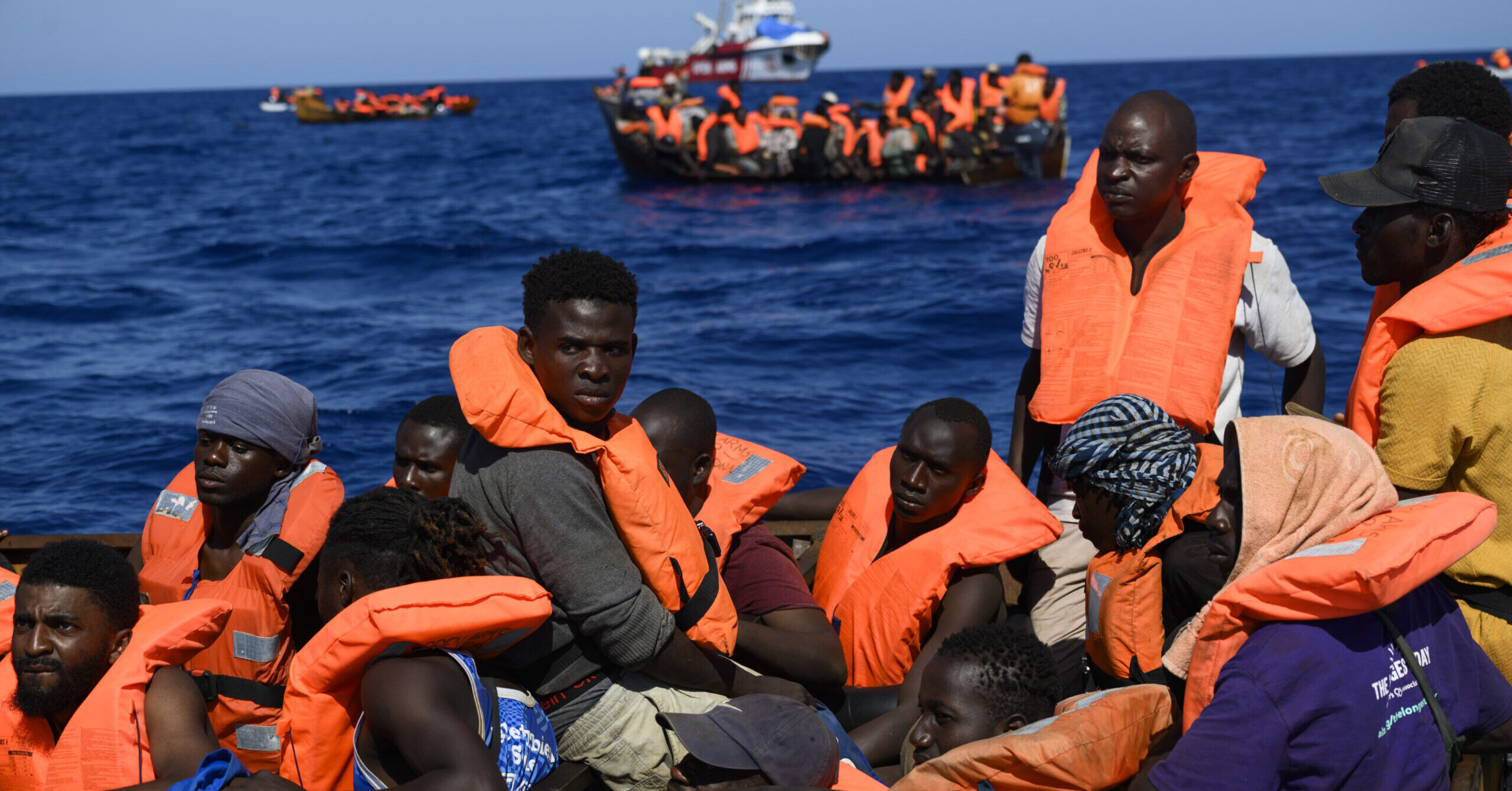A year after it was first announced, the British Government’s Rwanda plan remains bogged down in the courts. But as the legal tussle continues furiously in London, other European countries may be moving ahead with their own version of offshore processing as an answer to the refugee crisis.
Earlier this week, Christian Dürr, parliamentary leader of Germany’s Free Democratic Party, which belongs to the governing coalition, said that his party supported the idea of processing asylum seekers in countries outside of the EU. He justified his stance on humanitarian grounds — it would prevent hopeless applicants from making the risky journey across the Mediterranean. The German government is holding a federal-state summit on asylum policy next week, where the proposal could gain traction.
Then, on Thursday, Austria announced its own Rwanda-inspired deportation scheme, having struck a deal to cooperate with the UK. The plan would differ from Britain’s insofar as migrants deported to a third country would be able to return to Austria if their asylum applications were successful.
The potential change of heart in Germany is especially noteworthy, given the country’s previous approach to the influx of refugees in Europe, symbolised by Angela Merkel’s now-infamous exhortation that “we’ll cope”. The numbers tell another story: last year, Germany welcomed a million displaced Ukrainians and a quarter of a million asylum seekers from elsewhere. Increasingly, the feeling is that, despite its best intentions, Germany cannot in fact cope anymore.
Germany and Austria are not the first countries on the continent to turn to the offshoring of refugees, an idea which has long been discussed in European Union circles. In 2021, Denmark enacted legislation allowing for the processing of asylum seekers outside of the European Union, and opened an office in Rwanda last year in anticipation of sending refugees there, though no one has yet been sent over.
The Danish Rwanda plan has received far less international opprobrium than the UK’s, not least because British politics, like America’s, has become a sort of global newstainment. But the idea remains the same: to fulfil the country’s obligations under international law in relation to refugees by offloading them onto a third country, along with a hefty cash payment.
Cynical as this may seem, offshoring asylum seekers might actually be more humane than more covert forms of asylum externalisation, such as the European Union-backed Libyan Coast Guard. This body is subsidised by the bloc to stop migrant boats from crossing the Mediterranean — by force if necessary — and hence asylum seekers from landing in Europe, at which point they have to be dealt with in-country.
Offshoring processing, by contrast, is more upfront about what it seeks to achieve, namely keeping asylum seekers away, which explains why it tends to receive more coverage than the often violent — but unwitnessed — happenings in the Mediterranean.
Whether any of this will work remains the outstanding question. In June, Australia, which pioneered offshore processing, moved out the last asylum seekers who were being kept in Nauru, the barren island state which served as Australia’s own Rwanda, alongside Manus Island in Papua New Guinea.
Critics of the policy naturally saw in the gesture an admission of failure, though the Australian government is paying a hefty sum to keep the Nauru facility on standby. But there is no denying that the number of irregular arrivals to Australia by sea is now virtually zero, whether as the result of offshore processing, turnbacks at sea, simply changing migratory patterns, or a mix of all three.
But Australia is far harder to reach by boat than Europe’s southern shores, so alluringly close to the north African coast. And all current offshore processing schemes rely on large payments to the recipient country, which makes their scalability questionable. Given the size of the influx of would-be refugees into Germany, a few thousand removals to Rwanda or elsewhere may not end up making much of a difference.











Join the discussion
Join like minded readers that support our journalism by becoming a paid subscriber
To join the discussion in the comments, become a paid subscriber.
Join like minded readers that support our journalism, read unlimited articles and enjoy other subscriber-only benefits.
Subscribe